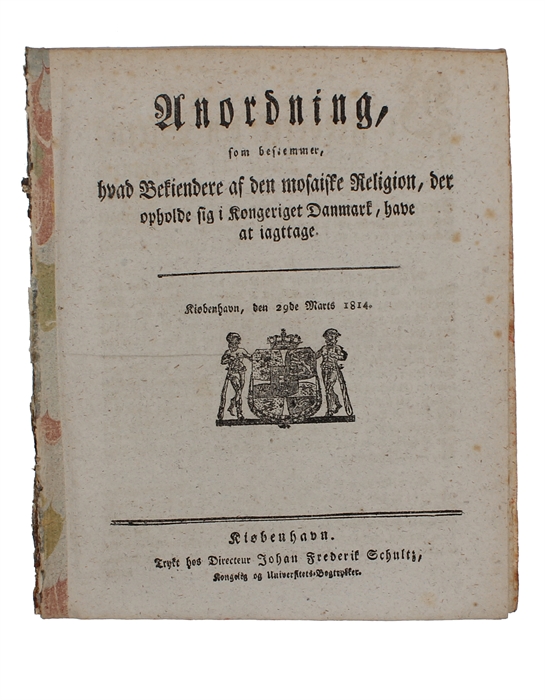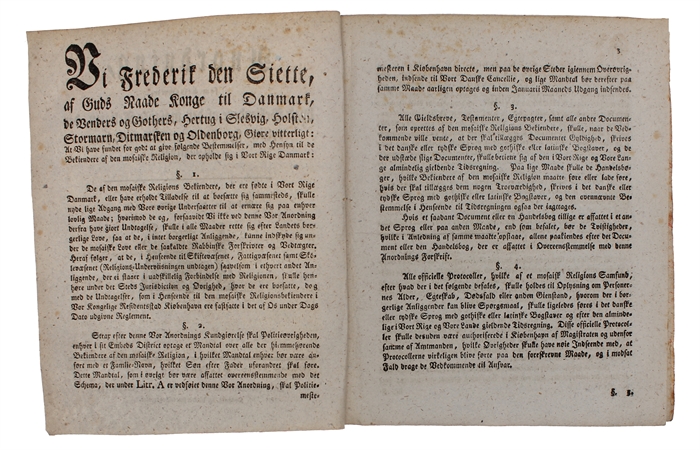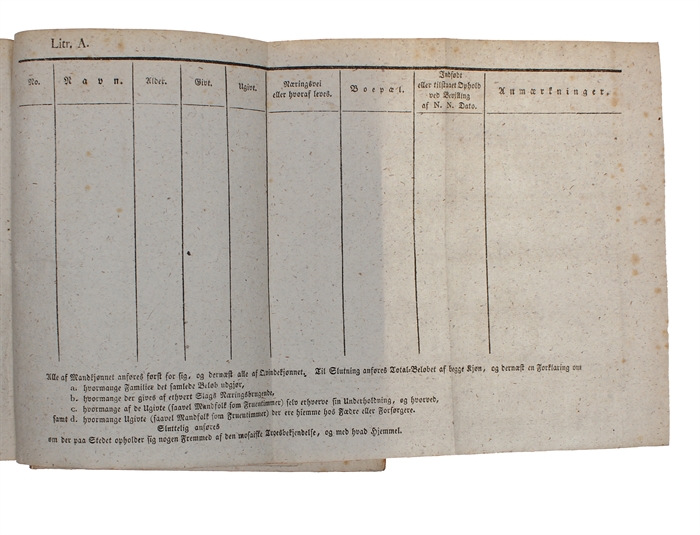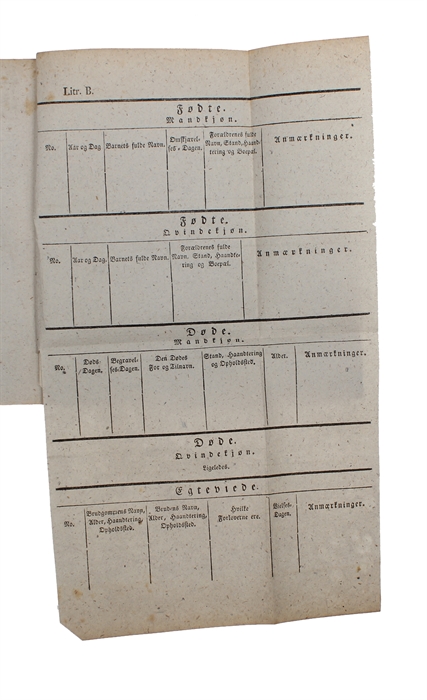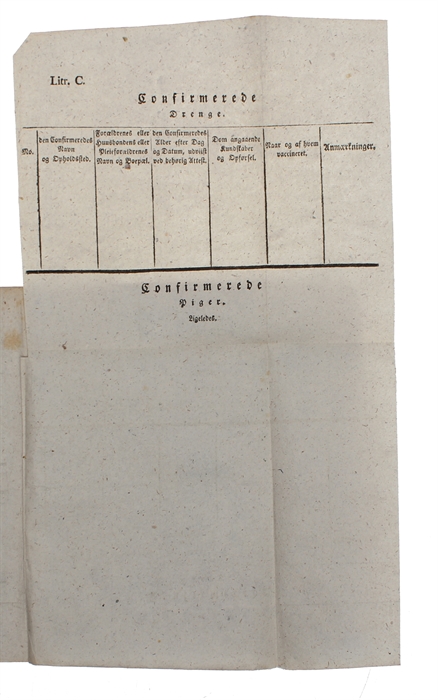JEWISH EMANCIPATION - THE LETTER OF LIBERTY FOR THE JEWS
FREDERIK VI - DE DANSKE JØDERS FRIHEDSBREV.
Anordning, som bestemmer, hvad Bekiendere af den mosaiske Religion, der opholde sig i Kongeriget Danmark, have at iagttage. Kiøbenhavn, den 29de Marts 1814. (+) Reglement for det mosaiske Religions Samfund i Kiøbenhavn. Kiøbenhavn, den 29de Marts 1814.
Kiøbenhavn, Schultz, 1814.
4to. Without wrappers, as issued. 8 pp and three folded tables (Litra A-C) + Reglement: 8 pp.
4to. Uden omslag som udkommet. 8 pp. samt 3 foldeskemaer (Litra A-C) + Reglement: 8 pp.
First printing of the two decrees that constitute the seminal "Letter of Liberty for the Jews", establishing Jewish emancipation in Denmark as one of the first countries in the world. With this groundbreaking decree of 1814, the Danish Jews were basically given the same rights and duties as other Danish citizens; at the end of the 19th century, many Danish Jews belonged to upper society, and almost all Jews were well integrated into Danish society. Jewish emancipation in Europe occurred gradually between the end of the 18th century and the first half of the 20th century. Jewish emancipation followed the Age of Enlightenment, after which various nations repealed or superseded previous discriminatory laws applied specifically against Jews where they resided. Before the emancipation, most Jews were isolated in residential areas from the rest of the society, and many European Jews worked to achieve integration in the societies and broader education. Jewish involvement in gentile society began during the Age of Enlightenment. Haskalah, the Jewish movement supporting the adoption of enlightenment values, advocated an expansion of Jewish rights within European society. Haskalah followers advocated "coming out of the ghetto", not just physically but also mentally and spiritually. In 1790, in the United States, President George Washington wrote a letter establishing that Jews in America share the same full equal rights, including the right to practice their religion, with all other Americans. On September 28, 1791, revolutionary France became the second country in Europe, after Poland 500 years earlier, to emancipate its Jewish population, and in 1814 Denmark finally had its decree "Letter of Liberty for the Jews", becoming the first country after America, Poland and France to give equal rights to Jews. Belgium and Greece were the neext countries to follow suit, 16 years after Denmark. _______________________________________________________________________________ Originaltrykkene af de danske Jøders frihedsbrev. Med denne kongelige anordning fra den 29. marts 1814 blev de danske jøders fremtidige retsstilling vedtaget ved lov. Alle jøder, der enten var født i Danmark eller havde erhvervet sig kongeligt lejdebrev (datidens opholdstilladelse), fik nu lige adgang til erhvervsudøvelse. Til gengæld forlangte regeringen, at jøderne underkastede sig den eksisterende borgerlige lovgivning inden for bl.a. arveforhold, civilret og skolegang.
The first Jews in Denmark settled in Altona (then a Danish city, until 1864) in 1584. In 1641 the first shul was built, and at about the same time, the first Jew, Dr Jonah Charizi, moved to Copenhagen, he died in 1626. In 1684 Israel David and Meyer Goldschmidt received royal permission to have Minyanim (services) in their homes. The growth of the community was quite slow, and by 1726 there were 65 Jewish families (331 persons). In 1787 there were about 250 families (some 1,200 people). In 1813 there was an attempt to have anti Jewish laws established, but to no avail, and finally, on March 29 1814, a royal decree was issued giving Jews Equal Rights.
Order-nr.: 59128

